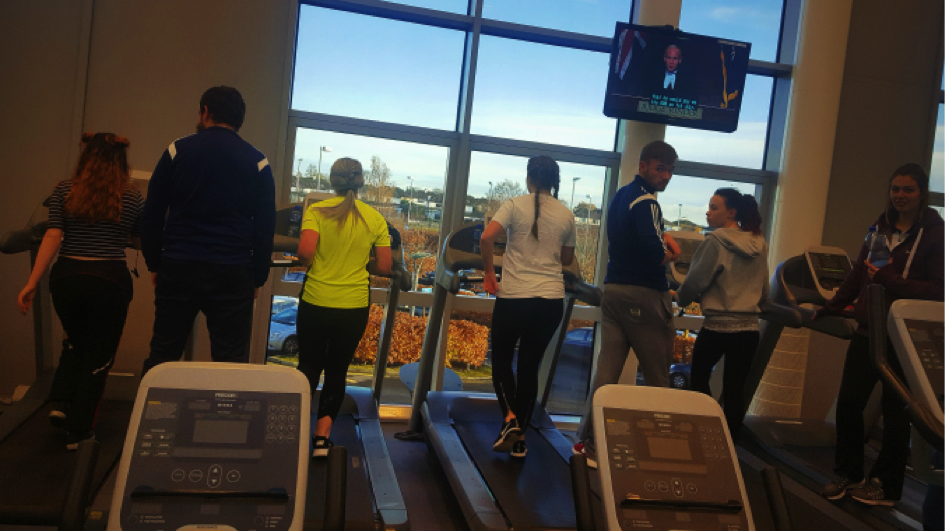Active Future Programme – Week 6 – Safe Gym Use, Smoking & Importance of Sleep & Problem Solving.
Posted November 4, 2016Extract from shaneodonnellblog
Week 5 of the Active Future Programme had a different approach to the normal structure. At the beginning of the programme participants were asked to list the courses in the college that they might be interested in studying. These ranged from Sports Science to Media Production, Bioforensics to Engineering and more. Based on this information we tried to organize a tour of the college that suited these needs of the participants, which gave them a taster of what the courses entail and which gave them an overall view of the facilities and support structures available in I.T. Carlow. Read more about our visit in the week 5 post https://shaneodonnellblog.wordpress.com/2016/11/14/active-future-programme-week-5-the-grand-tour/
Back to week 6
It is coming towards the end of the programme and I was searching for answers as to why the programme ran so smoothly. I came to the conclusion that it was our team and partners involved in the project. A major factor in any working relationship is trust and I feel that everyone involved, the participants, leaders and partners had mutual trust and respect for each other. Look for existing partnerships or relationships that you already possess and seek to make your programme fit their aims, goals or principals.
Physical Health Input
After a few weeks of working with the participants, the power was handed over to the Sports Science students to decide what topic(s) were important to deliver. Based on what they had learned from the participants thus far, smoking and sleeping were the topics of choice – which the students delivered in excellent fashion. The participants were shocked to learn that tobacco kills up to half its users and 5 million people per year. Indeed, 600,000 people die per year from second hand smoke alone. The participants then entered a discussion about why they started smoking and many agreed that it was a result of peer pressure. Next up was sleep and 7-9 hours is recommended depending on the individual. The participants spoke of getting only 5-7 hours with many citing worry and being on their phone as the primary reason. We then revised some of our relaxation techniques covered in week 2.
Physical Activity Input
The students guided the participants through safe gym use across a variety of equipment and exercises. The students informed the participants on correct form and technique when lifting free weights and machine weight, as well as different tempos and volumes that can be used to make exercises harder or easier. Next up was the cardio equipment where students explained the different heart rates zones that can be worked in, which all have a different physiological effect. The participants were shown how to use the treadmill, stationary bike, elliptical, rower and step machine to name but a few.
Mental Health Input
Last but not least, was our mental health input which covered the topic of problem solving. Michael Byrne guided the students through the 5 stage problem solving plan which can be a useful tool when trying to solve a particular problem or issue.
- State the problem. Sometimes this is not always easy. Michael reverted back to a previous section on understanding our thoughts. Is this a helpful or unhelpful though? Is there evidence to support that this is in fact a problem? If so…
- What could you do? Brainstorm for all possible solutions. Even if they seem very abstract ideas write them down – they could prove useful or at least cathartic.
- List what might happen for each of these solutions. Then pick which solution is best based on the consequence.
- Do it! This can prove very difficult and may involve a lot of rehearsing on what to say and/or do. This is normal.
- Evaluation – Did it work? Evaluate the pros and cons of the solution. If it worked great, if it didn’t work, go back a pick another solution you listed from step 2.
Read Shane’s full post in here and follow the development of his Active Future Programme every Friday on the NowWeMOVE blog and YOTM website.
Shane O’Donnell completed in the Youth on the MOVE training for young MOVE Agents in Europe and Latin America in June. He is now leading the Active Future Programme in Ireland with the experience he gained from the course. Find out more about Youth on the MOVE, supported by the European Union under the Erasmus+ programme.
